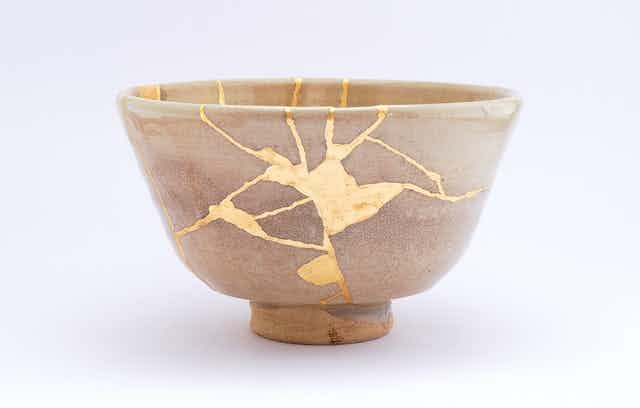If you and I were living in Britain during the tail-end of the first century, there’s a good chance I’d end our coffee date by saying something like, "Þancas for wīcian. Ic sōþlīċe brocige tō sprecenne be ūrum cildhāde frōforleásnesse!"
Because we’d be speaking Old English, which looks a lot like an alien bonked their head on a keyboard, but is actually just English before France and Vikings got involved.
"Þancas for wīcian. Ic sōþlīċe brocige tō sprecenne be ūrum cildhāde frōforleásnesse!" roughly translates to, “Thanks for hanging out. I really enjoyed discussing our childhood trauma!"
Childhood trauma would’ve looked way different for us back in the 800’s, mostly because people were lucky to live to 35, but that’s not why I am telling you this. I want us to look closely at the word “brocige” (pronounced "broh-chee-geh”).
In this context, brocige means, “I enjoyed.”
Let’s zoom even closer in on that word. The root, “broc,” was a verb meaning “to enjoy” or “to use” in Old English, so until about 1066 CE. The English language got a total Princess Diaries style makeover over the next 500 years, and during that time, the word broc started implying a lack of resources. As in, if you don’t have money, you can’t use or enjoy it.
English speakers also started pronouncing that “chee” sound as a hard “k.” Spelling caught up, and the word evolved to “broke.”
It wasn’t until the 1800’s that “broke” went from implying a slow week at work to utterly and completely destitute. And even then, the definition was confined to money, like the literal numbers not societal worth.
But tell that to my brain.
Here I am in 2023, a year women in the 1800’s probably couldn’t fathom, doing unimaginable things like owning an animal and paying my own taxes. I’m beyond privileged, like went to college to learn about Middle English privileged, and yet I still manage to equate being “broke” to being “broken.” Not for anyone else, mind you, just myself.
I fall down TikTok rabbit holes of women giving financial advice while on their mental health walk or whatever. They say things like, “What? Just make $10k a month in passive income and invest it,” and “Money isn’t even real, it’s just energy.” Which I want to believe, but am too busy wiping my tears with my masters degree in Writing.
This isn’t really about money, is it? It’s about self worth.
BUT WHY DELVE INTO THAT WHEN I CAN RESEARCH MORE ETYMOLOGY FACTS?!
There’s only an itty bitty linguistic connection between broke as in, “Oh man, I lost all my coins at the neighborhood witch burning and now I am broke” and broke as in, “Sorry I broke your Ming vase.” They share a root, but technically not a meaning. What we know today as the verb broke (as in “Sorry I broke your Ming vase playing Nerf football in the house, hope you have insurance) evolved from the Middle English term "brouken,"meaning “to fracture.”
It’s a more physical, brutal word. When you say you broke something, it implies a permanence, or at the very least, a need for professional help. “I broke my leg,” “My car broke down,” “He broke up with me.”
A broken system, perhaps.
Have you heard of Kintsukuroi? It’s a Japanese art form where broken ceramics are repaired with Elmer’s Glue liquid gold. Kintsukuroj translates to “golden joinery,” which, in my humble opinion, is really goddamn cute.
I love this analysis of the practice from Kelly Richamn-Abdou:
”Namely, the practice is related to the Japanese philosophy of wabi-sabi, which calls for seeing beauty in the flawed or imperfect. The repair method was also born from the Japanese feeling of mottainai, which expresses regret when something is wasted, as well as mushin, the acceptance of change.”
So, here is me as a bowl …
If gold wasn’t so freaking expensive.





More etymology facts please!